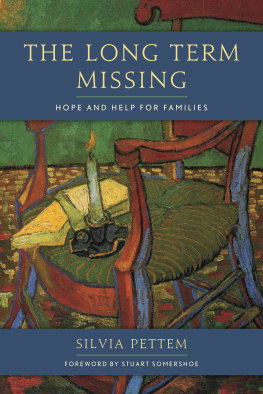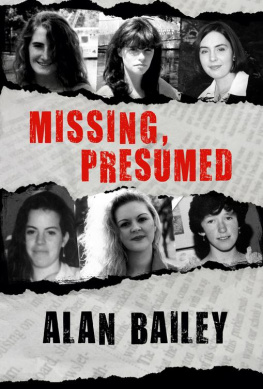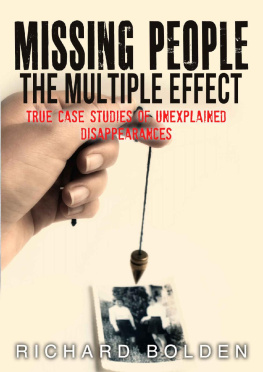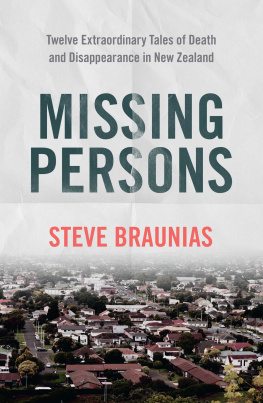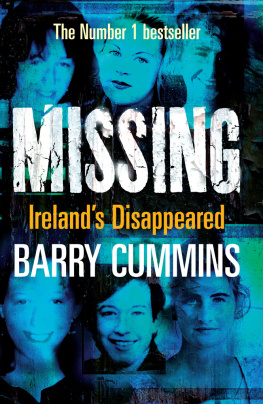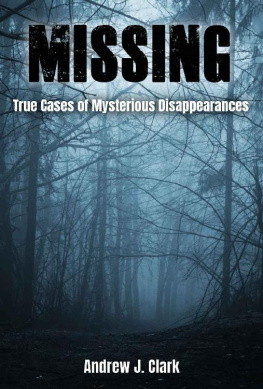Chapter 1
Who killed Kath?
The murder of missing mum Kath Bergamin
She was honest, friendly, hard working and an extremely devoted mum. But I have no doubt shes met with foul play
Detective Sergeant Damian Jackson, Victoria Police Homicide Squad
Kath Bergamin shot herself in the head, but she didnt want to die.
The bullet from the twenty-two-calibre rifle penetrated her soft pallet but missed her brain, miraculously allowing doctors to treat her without surgery. The depressed but loving mum eventually recovered and, for the first time in years, began to look forward to the future.
But not everyone was thrilled about Kaths new lease on life and they made it their mission to somehow finish what she started when she pulled the trigger
When Kath Bergamin was sixteen she was literally swept off her feet.
The teenager, whod recently finished Year 11 at Wangaratta Secondary School in north-eastern Victoria, had started work at a newsagents when she decided to kick up her heels at a local dance. It was there that she met a tobacco farmer, twenty-year-old John Bergamin, who charmed his way into her heart.
By seventeen, the smitten Kath was pregnant, and in March 1983, she and John tied the knot. A month later, Kath gave birth to their first child, Steven.
Two more children followed Renee, who was born in 1987, and Dylan, who came along in 1990. The young family lived in a cottage on Johns familys tobacco farm in Cheshunt, about 60 kilometres south of Wangaratta.
John was a born farmer, having been raised on the property and taking over the operation from his parents in the late eighties, later expanding into grape growing. Kath helped out on the farm and looked after the children but according to her brother, Roger Russell, she was never suited to being a farm wife, and got married a bit young because she was pregnant.
Kath adored the kids and made them her number-one priority but as time went by, she grew increasingly unhappy. Witness accounts say she was unhappy with the marriage, says Detective Sergeant Damian Jackson from the Victoria Police Homicide Squad.
John was a hard worker but hed just go away on weekends and leave her with the kids, Roger adds. She was a very social person and found the isolation tough. But according to Roger, that was the least of Kaths problems. He says John made it very clear that he never wanted her to leave the farm. My sister said wherever she went hed find her.
As time went by, Kath turned to another man for affection. She was actually having an affair with one of Johns friends, Roger reveals. She thought shed go off with him but it didnt work out in the end.
Roger believes John knew about the affair, yet to this day the men remain firm friends. Well, they do say that truth is stranger than fiction, especially in hill country. Up in those country areas it can get pretty weird, Roger says. In this case it brought out the full weirdness of the situation.
Before the illicit relationship had ended, however, Kaths troubles were reaching crisis point. So serious was her burgeoning depression that it led to several admissions to the psychiatric ward at Wangaratta Hospital. In 1995 she was admitted involuntarily because she was delirious, Damian says. Shed had a reaction to alcohol, marijuana and Paroxetine, an antidepressant. It was also reported that she had homicidal ideas towards her husband.
The following year, Kath admitted herself to the hospital, complaining of insomnia and a lack of energy. She was also more worried than usual about her children. Kath was diagnosed with the manic-depressive illness bipolar affective disorder, given more antidepressants and referred to a psychiatrist, but her depression was so debilitating that it forced her back into hospital again that year. I believe if shed married happily she would never have had depression, Roger muses.
Kaths unhappiness came to a head on 11 February 2002, the day she shot herself in the mouth. Remarkably she survived because when the bullet hit the back of her skull it fragmented, missing her brain. Kath was treated at the Alfred Hospital in Melbourne. She was then transferred to the Albert Road Clinic so that her depression could be managed. On 17 March, after an updated regimen of medication and numerous sessions with her psychiatrist, Dr Mark Johnson, Kath was discharged. At first, she stayed at her mothers, but in April, she returned home to the farm.
We told her not to do it [go back to the farm] cos hell think youre back for good, Kaths brother, Roger, says. But she wanted to go back for the kids. The kids were everything to her. She felt they still needed their mother and that she needed to be there for them.
Over the next few months, Kath continued her treatment with Dr Johnson, to whom she made some alarming allegations. The Victorian Coroners Court later heard Kath had informed him that over the years her husband had told her that she would never make it alive off the farm if she tried to leave him[and] that he had pointed a firearm directly at her on at least three occasions and that he had left bullets out for her as a reminder of his threats.
Interestingly, Dr Johnson did not confirm Kaths early diagnosis of bipolar disorder. He believed she suffered from recurrent depression and episodic hazardous drinking in relation to long standing marital difficulties.
And it appeared those difficulties were not about to resolve any time soon.
Her relationship with her husband and her children deteriorated, Damian says, and on 29 May 2002, she had an argument with her husband which caused her to flee to the home of some friends.
The next day, the police encouraged her to apply for an interim intervention order, which was granted. It was served on John and the police seized his firearms, Damian says. He expressed anger [about that] to the attending police.
Kath swiftly moved to a rental property and on 3 June, the intervention order was cancelled and the couple came to an agreement over finances in court.
For a while, it seemed as though Kaths dark days were over and she rapidly transformed into a woman who wanted to live life to the full. Her friends said she started to rebuild her life and that she had no more depression, Damian says. She wanted to finish a Diploma of Commercial Services at Wangaratta TAFE and organised a field education placement at Ovens College, which she was looking forward to.
She was also participating in volunteer work helping youth and people with disabilities.
Suddenly Kaths troubles seemed light years away.
And thats when she started socialising more and seeing other men, Damian says. He adds that her relationships were doomed, however, because John allegedly warned off his estranged wifes suitors.
That was when we thought shed be better off just leaving, Roger says, going somewhere new and starting again, but she hung around for the kids.
The Bergamins eldest, Steven, appeared particularly upset about what was going on. Coroner Peter White would later hear how on 5 June, Senior Constable Mick Harvey from Whitfield Police Station had casually asked the nineteen-year-old about his mothers health and received a startling response. Steven immediately became aggressive and said that she was crazy and that she wanted to leave his father but they could not afford for her to leave. He further spoke about his plans to develop his fathers farm into a winery and that the business could not afford for her to leave, and that there was no way his father would want her to leave.
The kids really didnt understand what was going on, Roger says. As far as they were concerned they wanted the family unit to stay as it was.
But, he continues, it was a dysfunctional family unit at the best of times.
Exactly what was going on between the Bergamins isnt known but on 16 July 2002, Kath felt compelled to apply for a second order, which was extended on 12 August to allow for a contested hearing in early October. Kath reported an alleged breach of the interim order on the evening of 13 August to Wangaratta police, who took no further action at the time.
Next page




